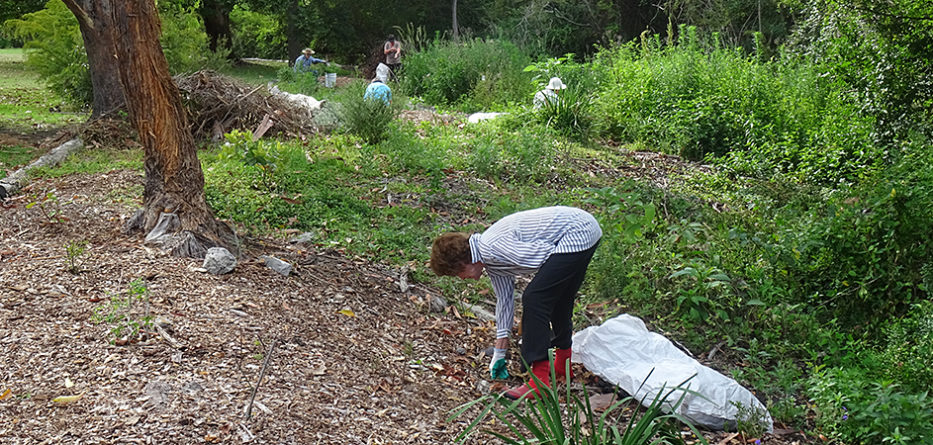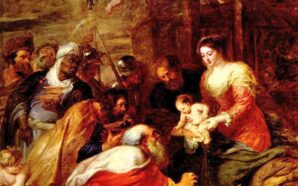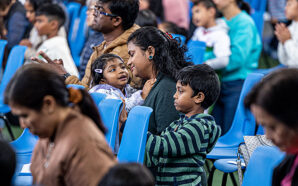Looking at all around us with the eyes of God
Most people attribute Pope Francis with calling the world to an “ecological conversion” in his encyclical Laudato si’.
But in that 2015 document on “care for our common home”, he says it was actually St. John Paul II who first called for a “global ecological conversion” during a general audience the late Polish pope held in early 2001.
But what exactly does the phrase mean? And, more importantly, how do we put it in practice?
Sylvie Mériaux, an apostolic sister with Fraternité Missionnaire en Rural (Missionary Sisters of the Countryside), leads reflection groups on integral ecology.
In this interview with La Croix’s Florence Chatel, she urges us to change how we view the world and others, and become aware of our behavior and its consequences.
La Croix: Have we lost the capacity to marvel at creation?
Sylvie Mériaux: The first to marvel at creation is God.
The first Genesis account tells us: “God saw that it was good.”
Then God entrusts this work of creation to humankind to take care of, but humanity does not go in that direction.
I think we have lost the ability to wonder and are in the process of regaining it.
Many people have needed to reconnect with nature after coming out of confinement. They are rediscovering that it is part of their existence.
Nature, which was for us an object at our disposal, becomes a subject again: flowers, plants, insects, animals… living beings which bring us back to ourselves, also.
We find a form of wonder in front of creation, but I do not think that it is enough to protect it.
La Croix: Why not?
Sylvie Mériaux: We are once again invited to become the image of God, to look at nature with the same eyes that see life and gratuity.
We can marvel at nature while seeking to use it for our own personal interest, without taking into account the life process behind it.
We see today the consequences of this way of acting: glaciers are melting, forests are burning. We have dumped our waste into water without being aware of the consequences on aquatic life.
We have seen the beauty of creation, but we have used it as an object for our well-being.
In the permaculture process, we don’t talk about contemplating, but of observing nature, listening to it in order to learn, from it, how it works.
Starting from the principle that nature has its own functioning, we are led to consider it as something other than an object that we own.
We engage our attention and we take a respectful look at the living.
La Croix: Isn’t this an idealized vision of nature? In the collective memory, it is also death, epidemics, drought or floods, or those “ungrateful” lands that our ancestors had so much difficulty cultivating.
Sylvie Mériaux: Indeed, we do not totally control nature…
And it has always been a source of tragedy for humankind: the rise in water levels in many parts of the planet, the recurring drought situation, etc.
And even on a daily basis, I think that the changes to which we are called are not always irenic, far from it.
Those who begin organic farming face a loss of production in the first few years. They must find new reference points. Starting a vegetable garden is one thing, making it last is another…
It is not enough to sow or plant. You also have to deal with weeds, insects that feast on your plants, moles that love the soil that you have enriched and that is now full of earthworms, and so on.
It is sometimes also a complex balance to be found between people and nature, the animal; I am thinking of the protection of wolves or bears.
La Croix: What does it take to put this ecological conversion into action?
Sylvie Mériaux: It requires, without a doubt, an awareness that takes us off center.
Faced with the current catastrophic situation, we are forced to do so.
Many of us understand that we cannot continue in our comfort zone at this rate. “To sin” originally meant “to miss the mark”.
We become aware of our mistakes. It is our own life that is at stake. Nature, perhaps, will be able to adapt.
In Et Lentement Tout Bascule (And Slowly, Everything Changes; L’Escargot), the book he wrote with his wife Blandine, Arthur de Lassus uses these words for his own path of conversion: “First I marvel at nature and I welcome it. Then I do everything I can to avoid harming it. Finally, I use technology to repair nature if it is damaged, but never to replace or augment nature itself.”
For us Christians, it is also a matter of respecting what the Lord has entrusted to us.
In St. Paul’s letter to the Romans (Chapter 8), it is the whole of creation that yearns for renewal, to be in the light of God: “Creation is waiting with eagerness for the children of God to be revealed.”
We sometimes forget that salvation is promised to the whole of creation: humanity, nature, animals, various species.
La Croix: Following awareness comes the idea of repairing. How can we do this?
Sylvie Mériaux: The first step in permaculture is to think about the design, that is to say the way in which I am going to arrange the ground around my house, for example.
We invite you to leave a somewhat remote piece of land fallow so that nature can regenerate itself.
If we leave it like that, plants will appear, but also insects and birds will come back.
To repair is to accept to leave a wild space where nature can do its own work.
I am also thinking of agroforestry. For a long time, hedges were cut down. Today, organic farmers are replanting trees. It is a form of repair.
Again, it is based on observation and a return to a certain wisdom. In the Bible, reparation comes through forgiveness.
Under God’s loving gaze, we acknowledge our fault and our desire, with God’s grace, to change. In our faith, there is always this hope for a possibility.
We are going towards a new land which, with Christ, has already begun. It is up to us to work, already today, through our choices, so that it happens.
Do I take my car or public transportation to work? Do I take the plane or the train to go on vacation? For how many kilometers? Is what is fastest, most convenient and cheapest the most ethical? What do I buy and how? How do I live in the time given to me?
Pope Francis tells us that everything is connected.
This means that the conversion to be experienced is situated at all levels: in our relationship to space, time, nature, ourselves, others and the All-Other that is God.
In our daily lives, we probably do things automatically.
We are invited to exercise discernment: what consequences will my choices have?
This process of questioning is part of the life and spiritual struggle of every Christian.
Reproduced with permission from La Croix International and Florence Chatel.








